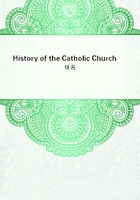
第123章
The writings of Pithou, Richer, and Dupuy, and above all the rising influence of the Jansenist party helped to spread the Gallican teaching among the French clergy, and to make them more willing to yield obedience to the king than to the Pope. The Abbot of St. Cyran attacked the authority of the Holy See, but fortunately the extreme nature of his views, and the need felt by both the priests and the bishops of France for the intervention of the Holy See against the Jansenists, served to restrain the anti-papal feeling, and to keep the leading theological writers, like Duval, Du Perron, Ysambert and Abelly, free from any Gallican bias. The accession of Louis XIV.
(1661) marked a new era in the history of the Gallican Liberties. He was young, headstrong, anxious to extend the territories of France, and determined to assert his own supreme authority at all costs. With Louis XIV. firmly seated on the French throne, and with the Jansenist party intriguing in the Parliament of Paris, which had shown itself hostile to papal claims, it was not difficult to predict that the relations with the Holy See were likely to become unfriendly. The Duke of Crequi,[1] Louis XIV.'s ambassador at Rome, set himself deliberately to bring about a complete rupture. Owing to an attack made by some Corsicans of the papal guard on the French embassy, the ambassador refused to accept any apology and left Rome, while Louis XIV. dismissed the nuncio at Paris, occupied the papal territories of Avignon and Venaissin, and despatched an army against the Papal States. Alexander VII. was obliged to yield to force, and to accept the very humiliating terms imposed upon him by the Peace of Pisa (1664).
The Jansenist party and the enemies of the Holy See took advantage of the policy of Louis XIV. to push forward their designs. A violent clamour was raised in 1661 against a thesis defended in the Jesuit schools (/Thesis Claromontana/) in favour of papal infallibility, and a still more violent clamour ensued when it was maintained in a public defence at the Sorbonne (1663) that the Pope has supreme jurisdiction over the Church, and that General Councils, though useful for the suppression of heresy, are not necessary. The Jansenist party appealed to the Parliament of Paris, which issued a prohibition against teaching or defending the doctrine of papal infallibility, but the majority of the doctors of the Sorbonne stood by their opinion, and refused to register the decree of Parliament. The opponents of the Sorbonne, hastening to avenge this first defeat, denounced the defence of a somewhat similar thesis by a Cistercian student as a violation of the prohibition. The syndic of the university was suspended from his office for six months, and the university itself was threatened with very serious reforms unless it consented to accept the Gallican theories. As a result of the interference of intermediaries a declaration satisfactory to the Parliament was issued by the doctors of the faculty (1663). In this document they announced that it was not the teaching of the university that the Pope had any authority over the king in temporal matters, that he was superior to a General Council, or that he was infallible in matters of faith without the consent of a General Council. On the contrary, they asserted that it was the teaching of the university that in temporal affairs the king was subject only to God, that his subjects could not be dispensed from their allegiance to him by any power on earth, and that the rights and liberties of the Gallican Church must be respected. This decree was signed by seventy-seven doctors, and was published by the Parliament as the teaching of the entire theological faculty and as a guide that should be followed in all theological schools. A violent agitation was begun against all who attempted to uphold the rights of the Holy See either in public disputations or in published works, an agitation that was all the more inexplicable, owing to the fact that at this time both the king and Parliament were endeavouring to persuade the Jansenists to accept as infallible the decrees by which the Pope had condemned their teaching.
Before this agitation had died away a new cause of dissension had come to the front in the shape of the /Regalia/. By the term /Regalia/ was meant the right of the King of France to hold the revenues of vacant Sees and abbacies, and to appoint to benefices during the vacancy, and until the oath of allegiance had been taken by the new bishops and had been registered. Such a privilege was undoubtedly bad for religion, and though it was tolerated for certain grave reasons by the second General Council of Lyons (1274), a decree of excommunication was levelled against anyone, prince or subject, cleric or layman, who would endeavour to introduce it or to abet its introduction into those places where it did not already exist. Many of the provinces of France had not been subject to the /Regalia/ hitherto, but in defiance of the law of the Church Louis XIV. issued a royal mandate (1673-75), claiming for himself the /Regalia/ in all dioceses of France, and commanding bishops who had not taken the oath of allegiance to take it immediately and to have it registered.
The bishops of France submitted to this decree with two exceptions.